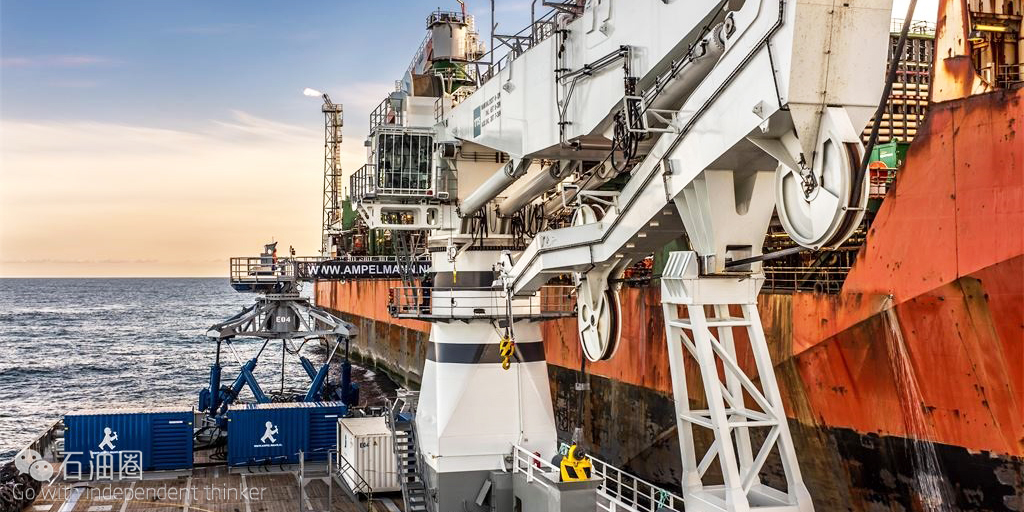Last month Emerson hosted its annual User Exchange event in the beautiful Belgian city of Brussels. Over 1,000 attendees flocked to the event to hear how the new reality of low oil and gas prices is providing opportunities for companies to focus on the core competencies of reliability and profitability.
The event was hosted in Brussels’ prestigious The Square conference centre, and featured a conference agenda packed with insight from a range of industry experts.
During his welcome address, Emerson’s president for Process Management, Steve Sonnenberg, said that the current climate of low oil prices forms part of a “new reality” that oil firms must learn to negotiate, if they are to remain profitable.
“I think these [low market] conditions are going to be with us for some time, although there might be some volatility in the short term. I can foresee a slow recovery in energy prices and that is why we are referring to the current climate as the new reality – because the whole world has been flipped upside down,” said Sonnenberg.
Sonnenberg said that it was crucial for oil and gas firms to plan for a protracted period of low oil prices. While low oil prices have forced companies in the oil and gas sector to change the way they do business, Sonnenberg was upbeat about the industry’s prospects.
“Of course with this new reality comes new opportunities: new opportunities to move beyond our previous practices and to try new ideas; to focus our efforts and investments where they have the greatest impact,” he said.
The ‘new reality’ of $40 oil has forced companies to focus on optimising performance, streamlining processes and increasing the reliability of their assets, in an attempt to squeeze every last drop of revenue out of every barrel of oil. This increased focus on reliability and asset optimisation is a genuine opportunity for the oil and gas sector to transform itself in the years to come, according to Sonnenberg. By aiming for top quartile performance in a range of sectors, oil and gas companies can thrive, even under such challenging market conditions.
For the top quartile companies that we have worked with, the answer has been to find an entirely different approach. These companies have found a lever – a lever gives you an advantage and allows you to move things that you couldn’t move before. Archimedes said: “Give me a lever and a place to stand and I can move the world.” What he is talking about is gaining a fresh perspective. In a business sense, finding the right lever for your situation will mean looking at new and creative solutions to existing problems.
Sonnenberg argued that by focusing on achieving top quartile performance, oil firms can dramatically increase production levels, boost uptime and become leaner more efficient businesses. It also offers firms the chance to dramatically reduce their energy consumption, thus improving their environmental performance and reducing their carbon emissions.
“Focusing on asset reliability is certainly a lever that you can use to transform the performance of your operation. Another is the area of energy and emissions. You might ask why should I worry about energy costs right now, while they are so low?
“I think there are two reasons. First of all, it’s likely that energy consumption is still your single biggest variable operating cost – up to 30 per cent for a typical industrial facility. Studies have shown that up to 37 percent of that energy is wasted. Eliminating that waste offers a real opportunity to improve profits and also to protect those profits from volatile energy prices in the future.
The second and most pressing reason to be more energy efficient is that higher energy efficiency translates to lower carbon emissions. I don’t need to tell you how important that is. Facilities that are being run today are being tasked with implementing the targets introduced last year at the COP 21 Conference in Paris,” he said.
Sonnenberg cited a number of examples of how Emerson has helped companies to achieve top quartile performance in oil and gas this year.
“These opportunities are real. For example, we worked with a refinery in Portugal that used advanced energy controls to reduce energy consumption in their aromatics plant by around 20 percent and they cut their co2 emissions by almost 24,000 tonnes per year.
“A gas processing plant in Hungary took a similar approach. They reduced variability in their distillation columns, which meant they reduced their heating requirements and cut their emissions by 11,000 tonnes of co2 per year. They had a payback period on that investment of less than 2 months.
“This just goes to show that when you identify the right opportunities and capitalise on them, the results can be amazing. Going from the bottom quartile to the top quartile in energy emissions can cut fuel costs and emission in half,” he concluded.
The Emerson User Exchange 2016 event was the perfect platform for knowledge enhancement and the sharing of best practice, within the process automation industries. Despite the new era of low oil prices, Emerson provided plenty of reasons for optimism in the oil and gas sector in 2016.


 石油圈
石油圈
